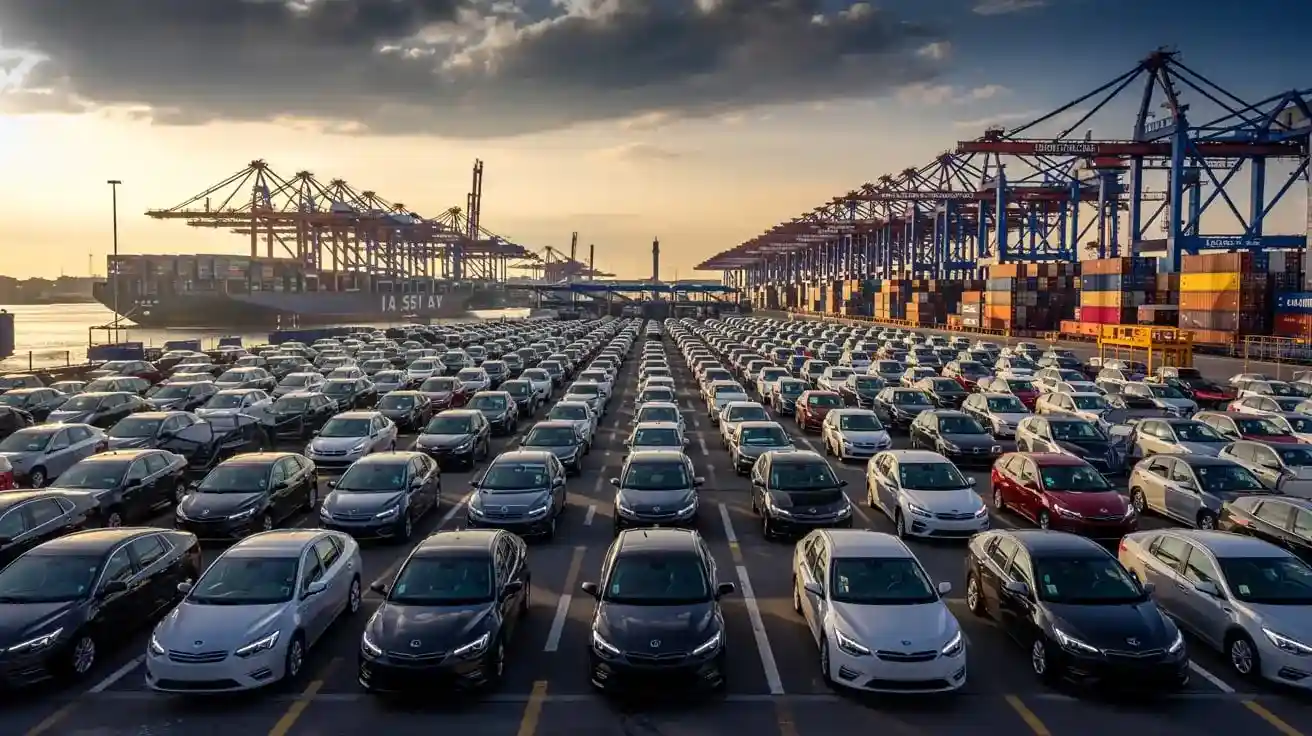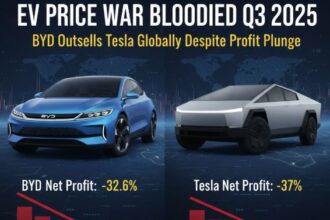The automotive industry is facing unprecedented challenges as automakers freeze imports, leading to thousands of new cars piling up at U.S. ports. This situation is not just a hiccup; it signals a deeper chaos affecting car availability and sales. Let’s dive into what’s happening, why it matters, and how it could impact you and the automotive landscape as a whole.
Understanding the Current Situation
The automotive sector is currently in a state of uncertainty. With thousands of new vehicles stuck at U.S. ports, the implications extend beyond just inventory levels. The root cause of this issue lies in the tariffs imposed by the Trump administration, which have created a significant freeze on imports.
While the president has put some tariffs on pause, the 25% tariff on automobiles and car parts remains firmly in place. Automakers are in a state of panic, as many brands have adopted a “wait-and-see” approach. This analysis paralysis is largely due to the fear of potential changes in tariff policies that could drastically affect their bottom lines.
The Impact of Tariffs on Automakers
Automakers like Audi, Aston Martin, and Jaguar Land Rover have halted shipments to the U.S. entirely, hoping their current inventories will last until a long-term solution is reached. This situation is particularly dire for European automakers, who are already grappling with existing tariffs on American cars.
- Tariff Confusion: Executives from logistics and automotive sectors report that imported cars are piling up at U.S. ports, which are nearing full capacity.
- Long-Term Strategy: Companies are looking for ways to store vehicles in U.S. bonded warehouses to avoid immediate tariff payments.
- Impact on Service Centers: Confusion surrounding what constitutes a car part could lead to significant delays in repairs, affecting service centers and car owners alike.
Who’s Affected the Most?
While all automakers are feeling the heat, Japanese brands are particularly vulnerable. Toyota, for instance, has sold over a million cars manufactured outside the U.S., and a 25% tariff could make these vehicles prohibitively expensive for American consumers.
Brands like Mazda and Subaru are in a similar position, as their largest market is the U.S. Even American brands like Ford and General Motors are not immune; they manufacture a substantial portion of their vehicles in Mexico and Canada. The looming tariffs threaten their profitability and market stability.
The Panic at Ford and General Motors
Ford’s CEO, Jim Farley, has openly expressed concern over these tariffs, stating that the American automotive industry could be decimated if they go into effect. The current administration has good intentions but is causing significant stress for automakers trying to navigate this chaotic environment.
Ford and GM’s reliance on manufacturing in Mexico and Canada means that a 25% tariff could lead to substantial losses. The stakes are high, and the automotive industry is on edge, with executives stressing the urgent need for clarity and resolution.
What’s Next for the Automotive Industry?
As the situation unfolds, many are left wondering what the future holds. The automotive landscape is shifting, and companies are exploring various strategies to mitigate the impact of these tariffs. Here are a few potential scenarios:
- Increased Prices: If tariffs remain, consumers may face higher prices for new vehicles, making them less accessible.
- Shift in Manufacturing: Automakers may consider relocating production closer to the U.S. to avoid tariffs, but this comes with its own set of challenges.
- Impact on Innovation: The pressure on automakers could stifle innovation as companies focus on survival rather than advancement.
The Bigger Picture: Trade Policies and Global Relations
This crisis is not just about cars; it reflects broader trade policies and global relations. Tariffs can have cascading effects across industries, impacting jobs, economies, and international partnerships. The uncertainty surrounding these tariffs could lead to a more significant trade war, which would have dire consequences for global trade.
Automakers are not just waiting for the storm to pass; they are actively seeking solutions. Many are lobbying for a reconsideration of the tariffs, emphasizing the need for fair trade practices that benefit all parties involved.
Concluding Thoughts
The automotive industry’s current state of chaos, characterized by the freeze on imports and the piling of new cars at U.S. ports, is a wake-up call. The implications of these tariffs are far-reaching, affecting not only automakers but consumers and service providers as well.
As we navigate this turbulent landscape, it’s crucial for stakeholders to remain informed and engaged. The situation is fluid, and the decisions made today will shape the future of the automotive industry for years to come. Whether you’re a consumer, a car enthusiast, or someone invested in the industry, understanding the nuances of this crisis is more important than ever.
What are your thoughts on the current situation? How do you think it will affect the automotive market moving forward? Share your opinions in the comments below!




